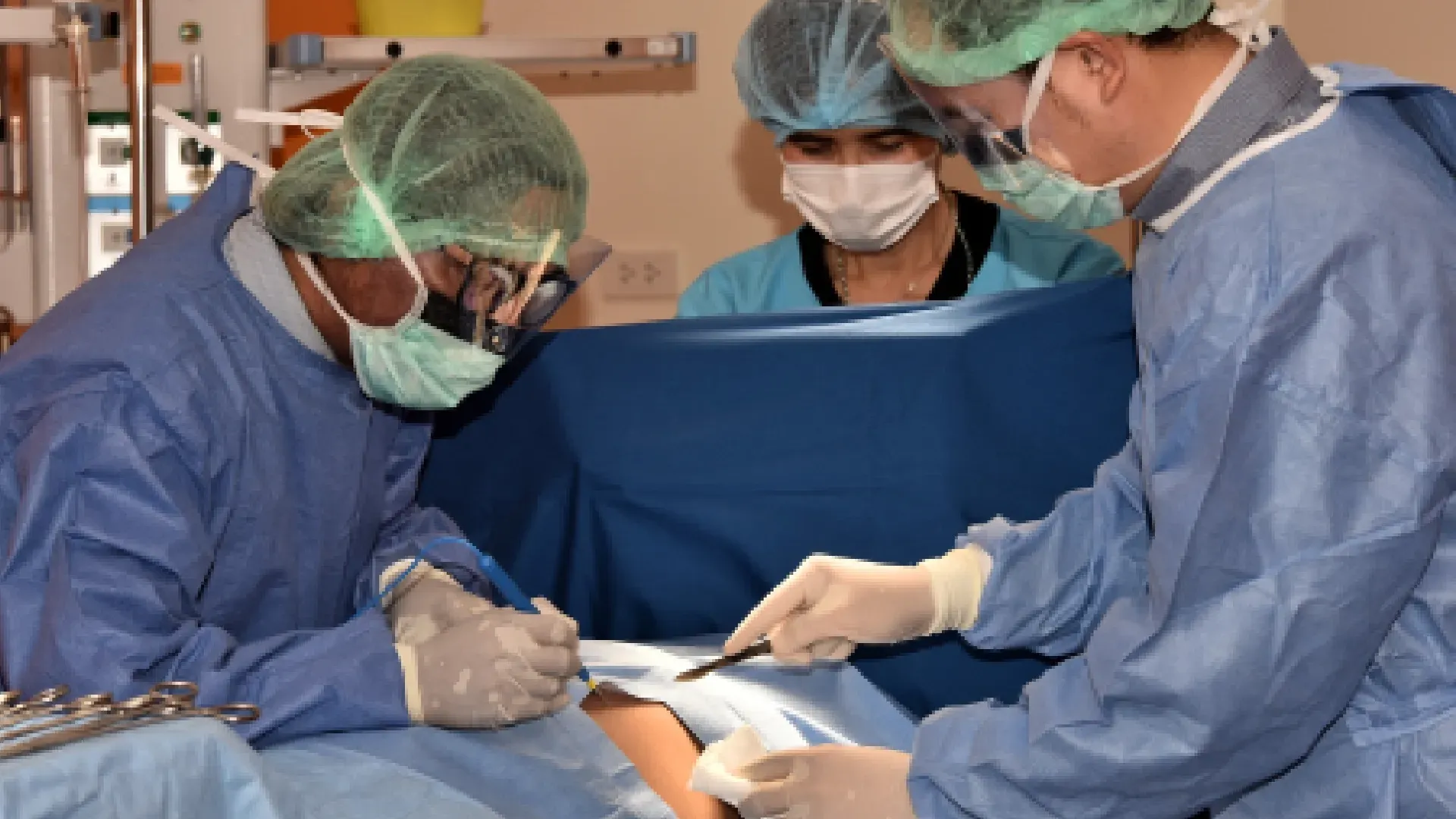Key Skills Every Theatre Nurse Needs for a Successful Operating Room Career
Theatre nursing is one of the most demanding yet rewarding specialisations in healthcare. Operating room nurses play a crucial role in ensuring safe and efficient surgical procedures, working alongside surgeons, anaesthetists, and other healthcare professionals. Beyond technical expertise, theatre nurses must also possess strong interpersonal skills to thrive in high-pressure environments.
In this blog, we explore the essential skills every theatre nurse needs to build a successful career in the operating room.
1. Strong Knowledge of Surgical Procedures and Equipment
Theatre nurses must have in-depth knowledge of various surgical procedures, from routine operations to complex, high-risk surgeries. They are responsible for preparing the operating room, ensuring that all instruments and equipment are sterilised and ready for use. Understanding how to handle and pass surgical instruments efficiently is essential for smooth workflow during procedures.
Additionally, theatre nurses must stay updated on the latest advancements in surgical technology, such as robotic-assisted surgery and minimally invasive techniques, to provide optimal support in the operating room.
2. Exceptional Attention to Detail
In surgery, even the smallest mistake can have serious consequences. Theatre nurses must maintain a high level of focus and attention to detail throughout every procedure. Whether counting surgical instruments, monitoring sterility, or assisting the surgical team, precision is key to ensuring patient safety and preventing errors.
3. Quick Decision-Making and Problem-Solving Abilities
The operating room is an unpredictable environment where situations can change rapidly. Theatre nurses must be able to think on their feet and respond quickly to any complications that arise. Whether it’s managing an equipment failure, assisting during an emergency, or anticipating the surgeon’s next move, the ability to make swift and accurate decisions is crucial.
4. Strong Communication and Teamwork
Surgical procedures require seamless coordination between multiple healthcare professionals. Theatre nurses must be excellent communicators, ensuring clear and concise exchanges with surgeons, anaesthetists, and fellow nurses. Miscommunication in the operating room can lead to delays or errors, so theatre nurses must be confident in voicing concerns, confirming instructions, and maintaining smooth collaboration throughout procedures.
Teamwork is equally important, as operating room teams rely on each other to create an efficient and safe surgical environment. Theatre nurses must work cohesively with their colleagues, providing support and assisting whenever needed.
5. Crisis Management and Ability to Stay Calm Under Pressure
Surgical emergencies can occur at any moment, requiring theatre nurses to remain calm and composed under pressure. Whether handling a sudden change in a patient’s condition or assisting in life-saving interventions, theatre nurses must act quickly while maintaining a clear mind.
Their ability to stay focused in high-stress situations ensures better outcomes for patients and helps the entire surgical team function effectively.
6. Patient Advocacy and Compassion
Although theatre nurses spend most of their time in the operating room, their role in patient care extends beyond the surgery itself. They are responsible for ensuring patient safety, comfort, and dignity throughout the surgical process.
Before surgery, theatre nurses reassure and educate patients about what to expect. After the procedure, they provide post-operative care, monitoring recovery and addressing any concerns. Compassion and empathy are vital in making patients feel at ease during what can often be a stressful experience.
7. Physical and Mental Stamina
Theatre nurses work long shifts, often standing for hours during lengthy procedures. Physical endurance is essential to keep up with the demanding nature of the role. Additionally, mental resilience is just as important, as theatre nurses must stay focused and alert throughout their shifts.
Maintaining a healthy work-life balance, practising self-care, and participating in stress management programs can help theatre nurses sustain their stamina and prevent burnout.
8. Commitment to Continuous Learning and Professional Development
The field of surgery is constantly evolving, with new techniques, equipment, and best practices emerging regularly. Theatre nurses must be committed to lifelong learning, attending training programs, workshops, and certifications to enhance their skills.
Pursuing additional qualifications, such as postgraduate perioperative nursing courses, can open doors to career advancement opportunities and leadership roles within surgical nursing.
Conclusion
A successful career as a theatre nurse requires a combination of technical expertise, problem-solving abilities, and strong interpersonal skills. From mastering surgical procedures to excelling in teamwork and crisis management, theatre nurses play a critical role in delivering safe and effective patient care.
At Dispatch Nursing Agency, we specialise in connecting healthcare facilities with skilled theatre nurses who possess the right qualifications and attributes for the role. If you’re looking for experienced operating room nurses or seeking new opportunities in theatre nursing, contact us today for expert recruitment solutions.











